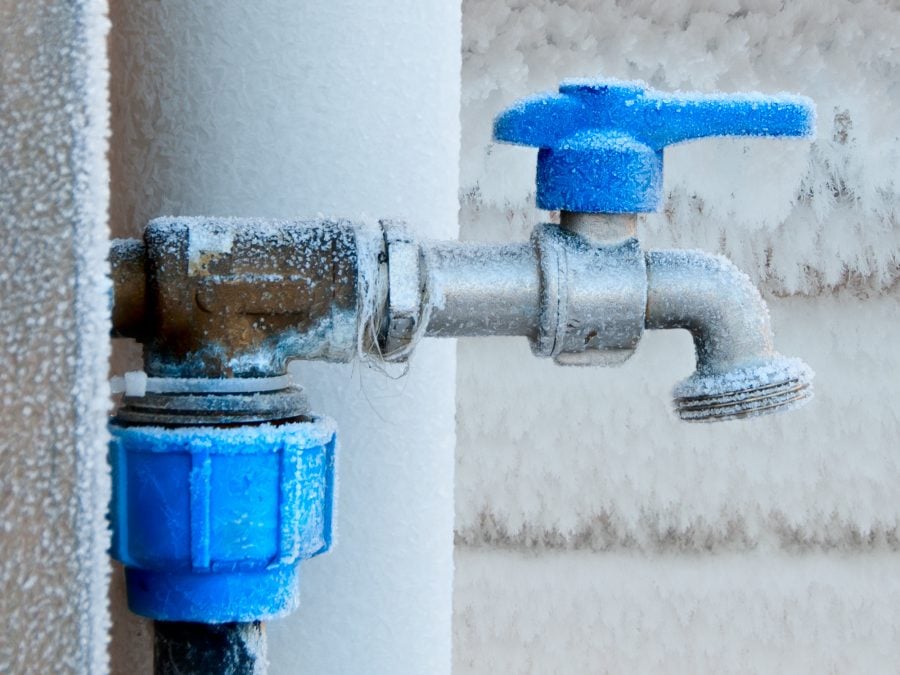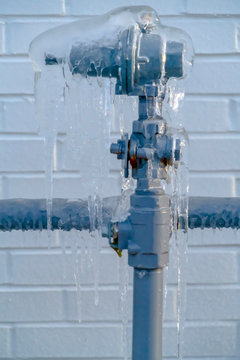We've encountered this great article relating to How To Avoid Freezing Pipes listed below on the web and accepted it made good sense to write about it with you on this page.

Cold weather can ruin your plumbing, particularly by freezing pipes. Right here's exactly how to avoid it from taking place and what to do if it does.
Intro
As temperature levels drop, the risk of frozen pipes rises, possibly resulting in expensive fixings and water damage. Recognizing how to stop icy pipelines is vital for homeowners in cold environments.
Avoidance Tips
Protecting prone pipes
Cover pipelines in insulation sleeves or utilize heat tape to safeguard them from freezing temperature levels. Focus on pipelines in unheated or outside areas of the home.
Home heating techniques
Keep interior areas effectively heated up, especially locations with plumbing. Open up cupboard doors to allow cozy air to flow around pipelines under sinks.
Just how to identify icy pipes
Look for reduced water flow from taps, uncommon smells or noises from pipes, and visible frost on subjected pipes.
Long-Term Solutions
Structural modifications
Take into consideration rerouting pipelines far from exterior walls or unheated areas. Add extra insulation to attics, cellars, and crawl spaces.
Updating insulation
Buy top quality insulation for pipes, attic rooms, and walls. Proper insulation aids maintain consistent temperature levels and lowers the threat of icy pipelines.
Securing Outside Plumbing
Garden pipes and outside taps
Detach and drain garden hose pipes prior to winter. Set up frost-proof faucets or cover outside taps with shielded caps.
Recognizing Frozen Pipelines
What triggers pipes to ice up?
Pipelines freeze when revealed to temperature levels listed below 32 ° F (0 ° C) for prolonged periods. As water inside the pipes freezes, it increases, taxing the pipeline wall surfaces and possibly causing them to rupture.
Risks and problems
Icy pipelines can result in water supply disruptions, residential property damage, and pricey fixings. Burst pipelines can flood homes and cause extensive architectural damage.
Indications of Frozen Pipeline
Identifying icy pipes early can stop them from rupturing.
What to Do If Your Pipelines Freeze
Immediate actions to take
If you think icy pipelines, maintain faucets available to alleviate stress as the ice melts. Use a hairdryer or towels taken in warm water to thaw pipelines slowly.
Verdict
Avoiding frozen pipelines requires aggressive procedures and fast feedbacks. By recognizing the causes, indicators, and preventive measures, property owners can safeguard their plumbing during winter.
Helpful Tips to Prevent Frozen Pipes this Winter
UNDERSTANDING THE BASICS: WHY PIPES FREEZE AND WHY IT’S A PROBLEM
Water freezing inside pipes is common during the winter months, but understanding why pipes freeze, and the potential problems it can cause is crucial in preventing such incidents. This section will delve into the basics of why pipes freeze and the associated problems that may arise.
THE SCIENCE BEHIND FROZEN PIPES
When water reaches freezing temperatures, it undergoes a physical transformation and solidifies into ice. This expansion of water as it freezes is the primary reason pipes can burst. As the water inside the pipe freezes, it expands, creating immense pressure on the walls. If the pressure becomes too great, the pipe can crack or rupture, leading to leaks and water damage.
FACTORS THAT CONTRIBUTE TO PIPE FREEZING
- Low Temperatures: Extremely cold weather, especially below freezing, increases the risk of pipes freezing.
- Uninsulated or Poorly Insulated Pipes: Pipes located in unheated areas, such as basements, crawl spaces, or attics, are more prone to freezing. Insufficient insulation or lack of insulation altogether exacerbates the problem.
- Exterior Wall Exposure: Pipes running along exterior walls are susceptible to freezing as they encounter colder temperatures outside.
- Lack of Heating or Temperature Regulation: Inadequate heating or inconsistent temperature control in your home can contribute to frozen pipes.
PROBLEMS CAUSED BY FROZEN PIPES
WHY CERTAIN PIPES ARE MORE PRONE TO FREEZING
- Pipe Bursting: As mentioned earlier, the expansion of water as it freezes can cause pipes to burst, resulting in significant water damage.
- Water Damage: When pipes burst, it can lead to flooding and water damage to your property, including walls, ceilings, flooring, and personal belongings.
- Structural Damage: Prolonged exposure to water from burst pipes can compromise the structural integrity of your home, leading to costly repairs.
- Mold and Mildew Growth: Excess moisture from water damage can create a favorable environment for mold and mildew growth, posing health risks to occupants.
- Disrupted Water Supply: Frozen pipes can also result in a complete or partial loss of water supply until the issue is resolved.
https://busybusy.com/blog/helpful-tips-to-prevent-frozen-pipes-this-winter/
- Location: Pipes located in unheated or poorly insulated areas, such as basements, crawl spaces, attics, or exterior walls, are at higher risk of freezing.
- Exterior Pipes: Outdoor pipes, such as those used for irrigation or exposed plumbing, are particularly vulnerable to freezing as they are directly exposed to the elements.
- Supply Lines: Pipes that carry water from the main water supply into your home, including the main water line, are critical to protect as freezing in these lines can affect your entire plumbing system.
- Underground Pipes: Pipes buried underground, such as those connected to sprinkler systems or outdoor faucets, can be susceptible to freezing if not properly insulated.

I'm very inquisitive about How to prepare your home plumbing for winter weather and I really hope you appreciated the new blog posting. Appreciated our blog entry? Please quickly share it. Help somebody else discover it. I enjoy reading our article about 6 Ways to Prevent Frozen Pipes.
Call Today
Comments on “Tips for Preventing Frozen Plumbing in Cold Weather: Specialist Insights”